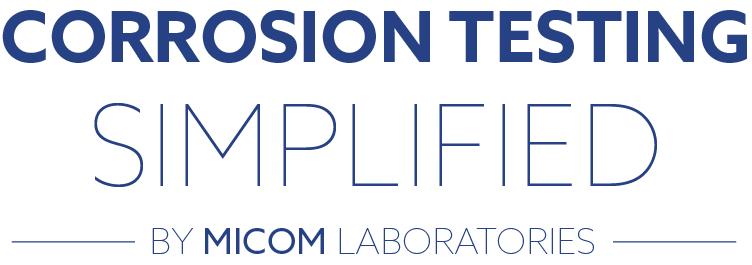Salt Spray Testing
ASTM B117 Testing Protocol
Thermal shock testing chambers are used for environmental stress screening as well as highly accelerated life testing.
Firms in numerous industries such as micro-electronic and electrical, telecom, automotive and aerospace often undertake thermal shock testing in order to accelerate aging of their components and simulate how components would behave in real life extreme environmental conditions.
What kind of condition can be tested during corrosion testing?
ASTM B117 is a standard salt fog with a 5% sodium chloride solution, a neutral pH ranging from 6,5 to 7 and a temperature of 35 C. ASTM G-85 offers different test conditions. ASTM G85 contains 5 annexes each consisting of a modification versus the standard ASTM B117 atmosphere.
Annex / Modification
- A1 - Acetic acid-salt spray test, continuous
- A2 - Cyclic acidified salt spray test
- A3 - Seawater acidified test, cyclic (SWAAT)
- A4 - SO 2 salt spray test, cyclic
- A5 - Dilute electrolyte cyclic fog dry test
Using ASTM B117 Salt Spray Testing
The main reason of using the salt spray testing or the salt fog testing is to determine the effects of corrosion on your specimens. Since different metals and surface coatings offer different levels of resistance to corrosion, the ASTM B117 test will enable you to get a better comparison about the effectiveness of their protection.
In addition, the ASTM B117 Salt Spray Test can enable you to better understand how a surface tends to corrode when scratched and how effective the adhesion of its coating is.
The results you gain from salt spray testing will allow you to gauge how well your metal, surface or coating can resist corrosion in the future when exposed to real life adverse environmental conditions.. By combining ASTM B117 with some of the other tests like the ASTM D1654
or the ASTM D3359, you can get a much better understanding about how material stratches will affect the corrosion of your specimen and how far corrosion will creep. You can also use the ASTM D610
test to evaluate the degree of rusting on painted steel surfaces
Numerous tests and industries
Numerous material tests can be done using Salt Spray Testing and ASTM B117 protocol
Military / Defence
- MIL - STD - 810 meth. 509.4
- MIL - STD - 331B
- MIL - STD - 202
- MIL - STD - 883 Salt atmosphere (corrosion 1009.8)
Aerospace
- TS325 - test for Electrical Connectors Thermal Shock
- TS348 - test for Electrical Connectors Thermal Shock (for Hermetically Sealed Connectors)
Automotive
- M0140 - Nissan test for salt spray testing
- GM 4298P - General Motors test for salt spray testing
- GM 9540 - General Motors test for cyclic accelerated corrosion analysis
- TSH1552G - Toyota test for salt spray testing
- HES 6501 - Honda test for salt spray testing
- SAE USCAR24 - Reviews the performance and validation requirements for the inflator assembly used in airbag modules
Materials
